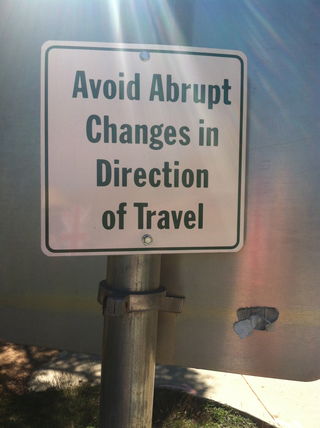Why Relying on GPS Does Your Brain No Favors
Why Relying on GPS Does Your Brain No Favors
How failure to pay attention to your surroundings may do more than get you lost.

Source: designerpoint/Pixabay
We've all done it, haven't we? Settled ourselves into the driving seat and, using some form of GPS, plugged in our destination. Particularly when the location we want to arrive at is unknown to us. Yet this automatic response not only highlights how we increasingly rely on technology to do our thinking for us, but it can have certain deleterious consequences.

Source: Liz Alexander
Noel Santillan eventually arrived in a tiny fishing village on Iceland's northern coast after driving in treacherous road conditions late at night following a long plane ride completely lost and almost 250 miles north of where he should have been. It turned out that when programming the GPS, someone had got the spelling of his hotel's location wrong, by just one letter (he wanted Laugavegur Road, not Laugarvegur Road).
But I'm not telling you this to discuss the relative merits, or otherwise, of technology. This is about the importance of paying attention. Of utilizing technology when it can assist us—like using GPS to reach an unknown location—while remaining mindful of what such over-reliance on machines might be doing to our brains.
You may already be familiar with the famous London taxi driver studies which revealed that these "cabbies" literally grew a part of their brains by absorbing "The Knowledge," or intimate knowledge of that city's labyrinthine streets. As with creatures that hide food in order to retrieve it later, the taxi drivers' superior memories were found to correlate with having larger-than-average hippocampi. That's the part of the brain's limbic center associated with experiencing and expressing emotions.
A shrinking hippocampus increases our vulnerability to Alzheimer's disease. It also makes us potentially less marketable if we ignore the value of this part of our brain to overall learning and memory or overlook its link to many other "well-documented cognitive deficits."
The practical answer doesn't lie in rejecting the value of technologies like GPS altogether, of course. (Something for which the National Park Service is grateful, given that "search-and-rescue missions have been dropping, from 3,216 in 2004 to 2,568 in 2014" thanks to this feature in cars and on our phones.) But it does suggest the importance of remaining curious, skeptical and orienting yourself physically to your surroundings when appropriate. After all, Noel Santillan would have saved himself a whole lot more time and effort if he'd first checked a physical map in order to gain a better lay of the land, before setting off on his unexpected adventure and being sent off on a wild goose chase. Albeit one that gained him a certain amount of celebrity!
But that's a large price to pay, wouldn't you agree, for giving up on one of our foundational human abilities: paying attention so that you boost rather than lose the ability to respond to unpredictable circumstances.

